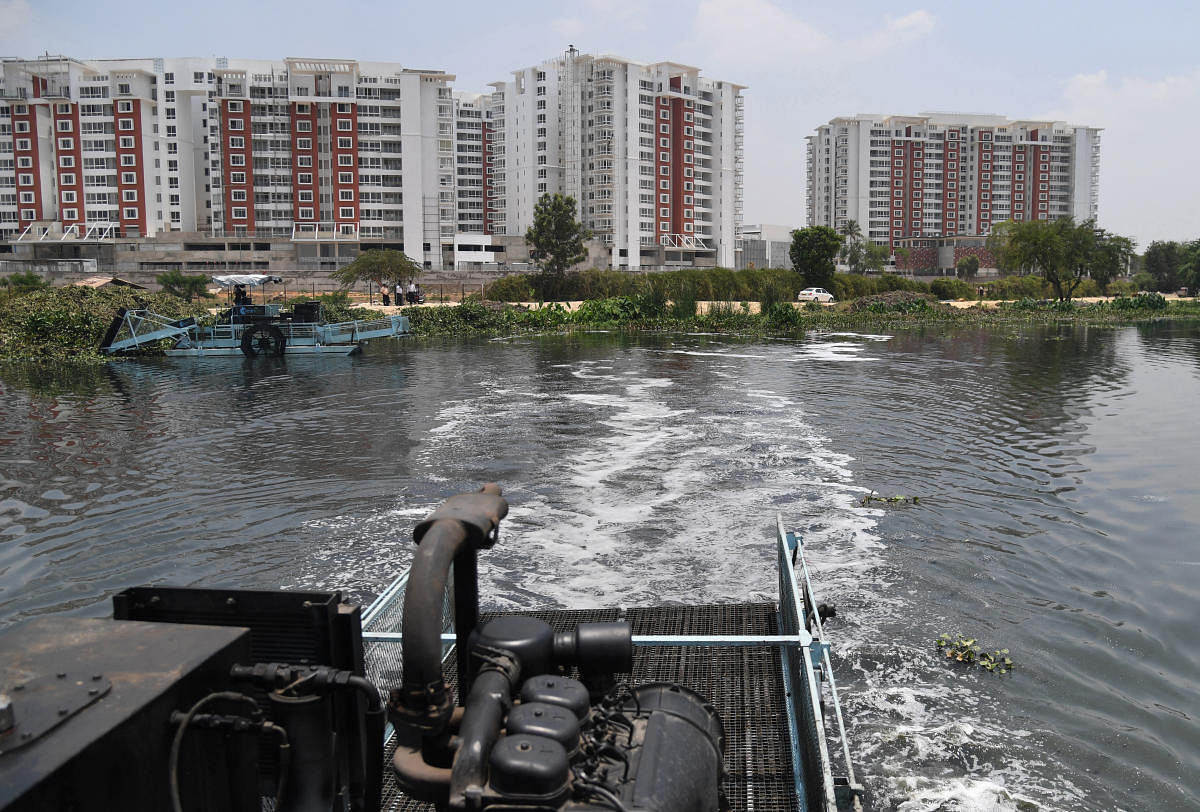
The Supreme Court on Wednesday asked if a statutory body like the National Green Tribunal can change the 30-metre buffer zone around lakes in Bengaluru to raise it to 75 metres, wondering what would happen to thousands of flats that have come up in the city.
“Can the NGT, which itself is a statutory body, supersede the statutory provision? How can the NGT do it? If the NGT’s directions are strictly adhered to, what would be the impact on existing constructions?” a bench presided over by Justice A K Sikri asked the NGO ‘Namma Bengaluru Foundation’ on whose plea general directions were issued in 2016.
“It is going to have a substantial effect on the city. Can we put the clock back, once a period of time has passed and so many constructions have come up? In 1950, the population of the city was just 10 lakh, can you drive the people out of the city?” the bench, also comprising Justices S Abdul Nazeer and M R Shah, asked.
The court’s queries were posed as Karnataka’s Advocate General Udaya Holla questioned the NGT’s directions issued without any substantial challenge to the law or the master plan. He said the development of infrastructure, including tech parks, was absolutely essential. “Today, there is no farming taking place in the city. All the lakes over there were man-made. The younger generation would not get any jobs. Over 35,000 flats will have to be razed. The situation would be like the World War II and the whole city would be totally decimated,” he said.
Holla said every building in the city would fall within the buffer zone of a tertiary drain if the NGT’s orders were to be given effect to.
The state government, along with several real estate developers, challenged the validity of NGT’s principal bench orders of May 4, 2016, for maintaining a buffer zone and green belt of 75 metres in case of lakes, 50 metres for primary, 35 metres for secondary and 25 metres for tertiary raja kaluves.
Senior advocate Sajan Povayya, appearing for the NGO, maintained the NGT’s orders were to be implemented for all future constructions or in those cases, where sanctions were granted but no structure was raised. He said he would put forth the detailed submission on factual matrix.
Senior advocate Mukul Rohatgi, appearing for real estate major Mantri Techzone, submitted that the matter should not be referred back to the NGT for fresh examination or setting up of a panel to have a relook on the subject. “We have suffered a lot, the sanction was granted for our project in 2012, the project remained unfinished for seven years,” he said.
The hearing, which remained inconclusive, would continue on next Tuesday.
